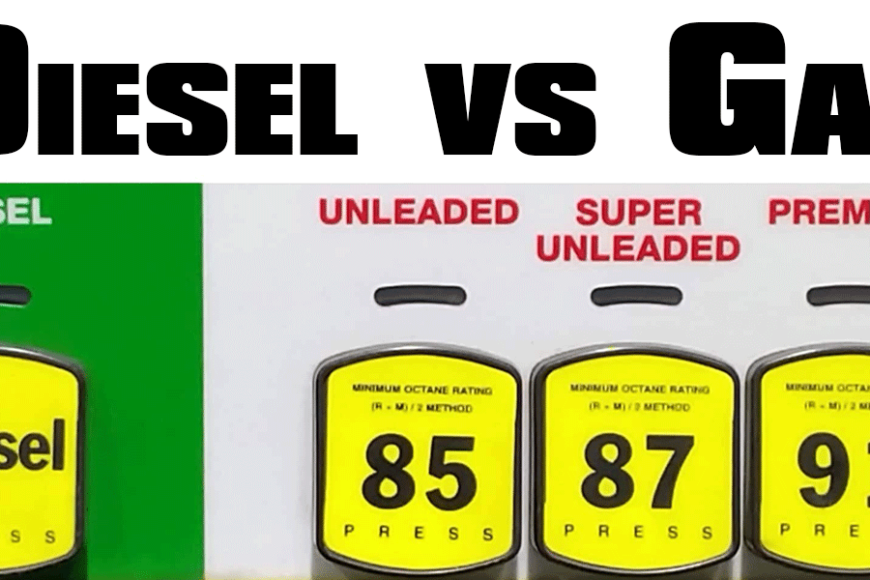- November 30, 2023
- By Tess
- In Engine
- Tags Diesel Engine, gas engine
- 1134
- 0

The debate between diesel and gasoline engines has long intrigued automotive enthusiasts and industry experts alike. Each fuel type possesses unique traits and benefits, catering to various driving requirements. This comprehensive analysis aims to delve deeper into the distinct characteristics of diesel and gasoline engines, shedding light on their performance, efficiency, and suitability across diverse driving scenarios.
Diesel engines stand out for their torque-centric performance, leveraging a design that generates substantial pulling power at lower RPMs. This torque advantage allows diesel-powered vehicles to excel in heavy-duty tasks such as towing trailers, hauling cargo, and climbing steep grades with ease. The robust torque output enables a smoother driving experience, especially when carrying heavy loads, as it requires fewer gear changes to maintain speed. This characteristic makes diesel engines an optimal choice for drivers seeking enhanced towing capability and superior low-end power delivery in their vehicles.
Efficiency lies at the core of diesel engines, owing to their high compression ratios and lean combustion processes. This intrinsic design leads to superior thermal efficiency, allowing diesel engines to convert a higher percentage of fuel energy into useful work. Consequently, diesel-powered vehicles often exhibit better fuel economy, particularly on highways and long-distance drives. Their exceptional efficiency, especially at constant speeds and under heavy loads, makes them a preferred choice for commercial vehicles, long-haul trucks, and drivers seeking extended range between refueling stops.
Gasoline engines typically excel in delivering higher horsepower outputs compared to their diesel counterparts. This horsepower advantage results in more spirited acceleration, enabling gasoline-powered vehicles to achieve faster speeds and quicker acceleration times. The design of gasoline engines, with a lower compression ratio compared to diesel engines, allows for smoother and more responsive driving experiences. This characteristic makes gasoline engines well-suited for applications where quick bursts of speed are essential, such as in smaller vehicles, sports cars, and situations requiring rapid acceleration.
Modern advancements in gasoline engine technology have significantly improved their fuel efficiency. Features like direct fuel injection, variable valve timing, and turbocharging have contributed to enhancing mileage and overall efficiency. While historically lagging behind diesel engines in terms of fuel economy, contemporary gasoline engines offer a balance between performance and efficiency. They prove advantageous in urban driving environments and scenarios involving frequent stop-and-go traffic due to their responsive and adaptable nature.
Diesel engines have faced scrutiny in the past for higher emissions of nitrogen oxides (NOx) and particulate matter. However, advancements in emission control systems, including selective catalytic reduction (SCR) and diesel particulate filters (DPF), have significantly mitigated these concerns. Modern diesel engines meet stringent emission standards, narrowing the gap between their emissions and those of gasoline engines. The cleaner diesel fuel formulations and advanced exhaust after-treatment systems have notably reduced harmful emissions.
While gasoline engines generally emit lower levels of NOx and particulate matter than older diesel engines, they produce relatively higher amounts of carbon dioxide (CO2) – a greenhouse gas contributing to climate change. The focus on improving fuel economy and reducing CO2 emissions from gasoline engines has led to the adoption of technologies such as cylinder deactivation and start-stop systems, aiming to mitigate their environmental impact.
Diesel-powered vehicles often come with higher upfront costs due to the complexity of their engines and emission control systems. However, they may demonstrate better longevity and lower maintenance expenses over their lifespan, potentially offsetting the initial investment. The durability of diesel engines, with their robust construction and lower RPM operation, often results in longer service intervals, reducing overall maintenance costs for diesel vehicles.
The cost dynamics between diesel and gasoline fuel play a significant role in the overall cost of ownership. While diesel fuel traditionally costs more per gallon than gasoline, diesel engines often deliver better fuel economy. Regional variations in fuel prices and taxation, coupled with the availability of each fuel type, influence the economic feasibility of owning and operating vehicles powered by diesel or gasoline.
Diesel engines, owing to their torque advantage and fuel efficiency, are commonly preferred for commercial applications, heavy-duty trucks, and towing vehicles. Their ability to handle substantial loads while maintaining efficiency makes them indispensable in industries reliant on transporting goods and heavy equipment. Gasoline engines, on the other hand, find more prevalence in smaller vehicles, sedans, and daily commuting due to their agile and responsive nature, catering to urban driving environments.
The choice between diesel and gasoline engines often boils down to personal preferences, individual driving habits, and the specific needs of the driver. Drivers who prioritize towing capacity, long-distance travel, and fuel efficiency might lean towards diesel engines, whereas those seeking quick acceleration, urban maneuverability, and lower initial costs might prefer gasoline engines. Tailoring the choice to suit one’s driving patterns and lifestyle is crucial in making an informed decision.
The diesel vs. gasoline engine debate doesn’t yield a one-size-fits-all solution. Each fuel type offers a unique set of advantages, appealing to diverse driving needs and preferences. While diesel engines focus on torque, efficiency, and heavy-duty applications, gasoline engines emphasize horsepower, agility, and urban driving convenience. Ultimately, selecting between them depends on individual requirements, driving patterns, and the intended purpose of the vehicle.





